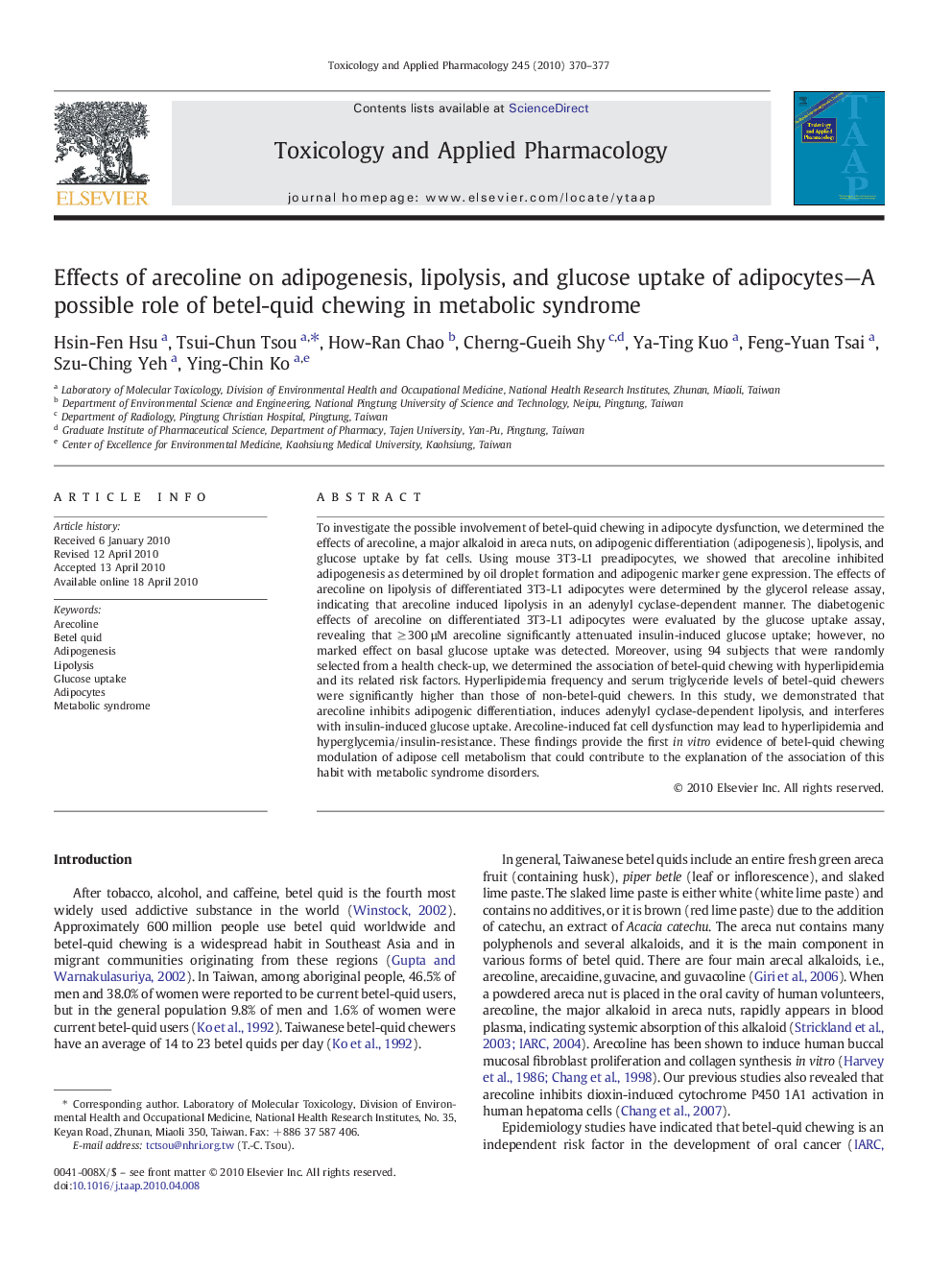| Article ID | Journal | Published Year | Pages | File Type |
|---|---|---|---|---|
| 2570272 | Toxicology and Applied Pharmacology | 2010 | 8 Pages |
To investigate the possible involvement of betel-quid chewing in adipocyte dysfunction, we determined the effects of arecoline, a major alkaloid in areca nuts, on adipogenic differentiation (adipogenesis), lipolysis, and glucose uptake by fat cells. Using mouse 3T3-L1 preadipocytes, we showed that arecoline inhibited adipogenesis as determined by oil droplet formation and adipogenic marker gene expression. The effects of arecoline on lipolysis of differentiated 3T3-L1 adipocytes were determined by the glycerol release assay, indicating that arecoline induced lipolysis in an adenylyl cyclase-dependent manner. The diabetogenic effects of arecoline on differentiated 3T3-L1 adipocytes were evaluated by the glucose uptake assay, revealing that ≥ 300 µM arecoline significantly attenuated insulin-induced glucose uptake; however, no marked effect on basal glucose uptake was detected. Moreover, using 94 subjects that were randomly selected from a health check-up, we determined the association of betel-quid chewing with hyperlipidemia and its related risk factors. Hyperlipidemia frequency and serum triglyceride levels of betel-quid chewers were significantly higher than those of non-betel-quid chewers. In this study, we demonstrated that arecoline inhibits adipogenic differentiation, induces adenylyl cyclase-dependent lipolysis, and interferes with insulin-induced glucose uptake. Arecoline-induced fat cell dysfunction may lead to hyperlipidemia and hyperglycemia/insulin-resistance. These findings provide the first in vitro evidence of betel-quid chewing modulation of adipose cell metabolism that could contribute to the explanation of the association of this habit with metabolic syndrome disorders.
